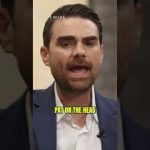In recent discussions surrounding the political climate, some interesting observations have emerged about the contrasting approaches to mental health evaluations of politicians, particularly regarding Donald Trump and Joe Biden. For years, pundits on the left boldly speculated about Trump’s psychological state, with over 70,000 mental health professionals even signing a petition suggesting Trump exhibited serious mental health issues that could impact his leadership. Many alleged disorders, such as narcissistic personality disorder or sociopathy, were invoked as possible concerns. However, as Joe Biden became a focal point in debates, his cognitive abilities were also questioned, particularly by political opponents. The narrative shifted, with questions about Biden’s mental acuity being raised, but his defenders largely rejected such speculations, viewing them as politically motivated.
This discrepancy illuminates a larger issue about how we view our leaders and the narratives shaped around them. Diagnosing public figures from afar is considered problematic, with many professionals pointing out that without a formal examination, such speculation can be unethical. Nonetheless, these discussions persist, especially given the importance of leadership fitness.
Moreover, the population’s response to such political narratives plays a crucial role. Research indicates that around 20% of individuals are highly susceptible to political messaging, while 10% tend to identify inconsistencies or falsehoods quickly. The remaining 70% of the population is left navigating the often-confusing landscape of political discourse. Conservatives, in particular, could benefit from focusing on this middle group, as they are the most likely to seek clarity and honesty in political leadership rather than partisan zealotry.
This brings us to the all-important issue of freedom of speech. The right to discuss and debate the mental fitness of leaders is crucial for a functioning democracy. However, allowing only the loudest voices to dominate the conversation can lead to losing these very liberties. Engaging the 70% in meaningful dialogue about their rights is vital to ensuring they are not overwhelmed by the noise of extreme viewpoints. Their desire for transparency and thoughtful discourse should be honored in political discussions.
In conclusion, as the political landscape evolves, all politicians must be subject to the same level of scrutiny regarding their mental fitness. Instead of allowing partisan voices to control the conversation, there should be a balanced approach to evaluating all leaders. Empowering the middle ground is key, as an informed and engaged citizenry is essential to a healthy democracy. With a little humor and a lot of clarity, it’s time to reshape the conversation around our leaders for the sake of truth and transparency.




